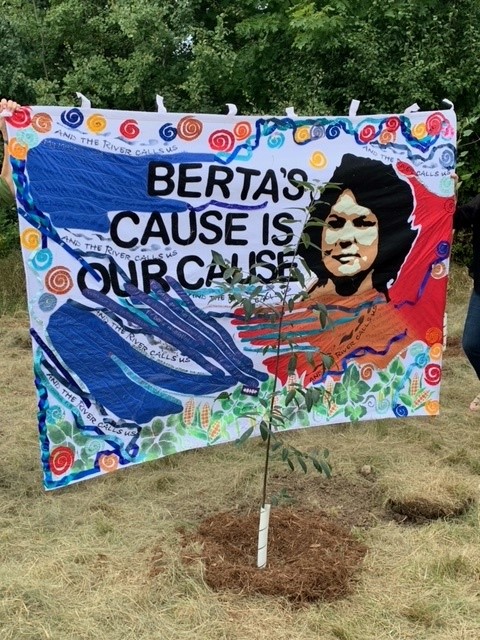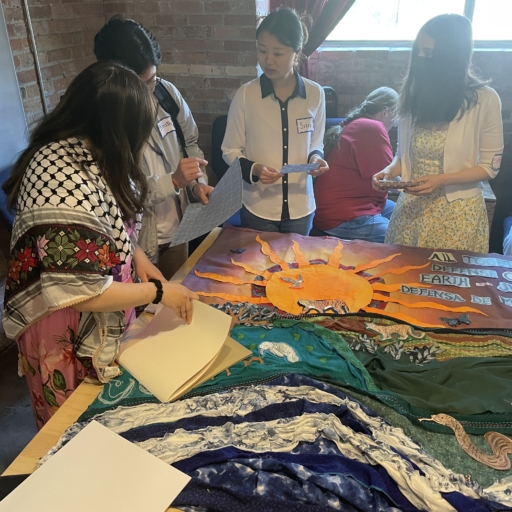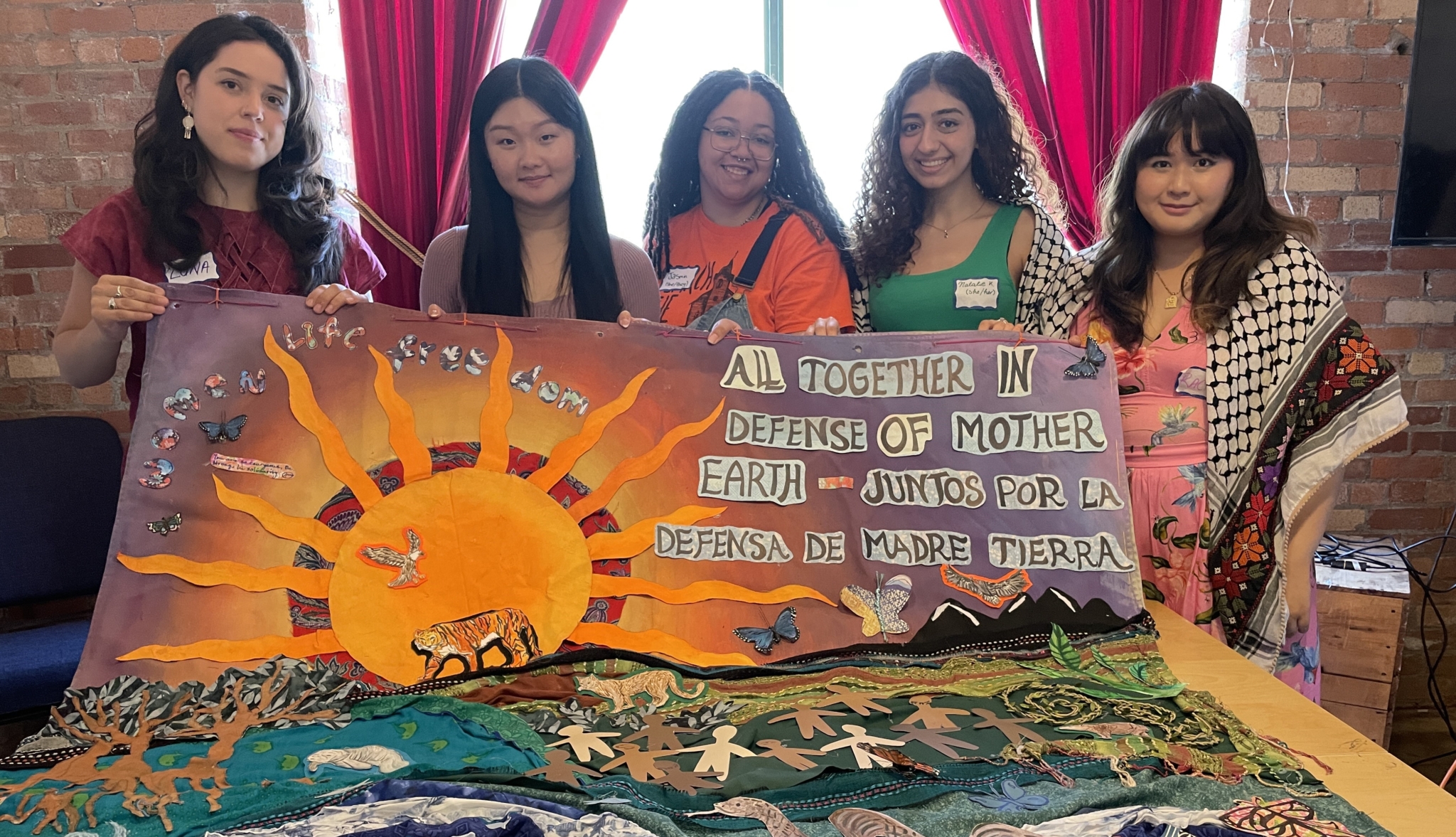We all worry about climate change and the violations of human rights it brings. We want the climate crisis to be dealt with in a just way, taking account of human rights for all.
Would you like to share these climate concerns with your community, to educate and to engage them?
Amnesty’s Climate Justice Advocacy Specialized Team has developed a resource kit to provide you with activities to help you engage with your community in different ways, with people of different age groups and interests.
Here are some examples:
- Host a Human Library – we have ideas for how to do this and who to ask
- Hold a Public Art Build – paint a banner and ask passersby to add their own artwork and messages of solidarity for the affected community
- Organize a film night – we have a list of free climate-related films from which to choose
- Organize a climate workshop
- Lead a group to learn how to be an effective climate communicator
- Set up an information table at a local farmer’s market, public event, fair, in a park or community centre
- Engage in solidarity initiatives (for e.g., plant a tree)
A support team is on hand to guide and support you in your activism. Please note that as the kit is in a shared folder the access is VIEW only. If you would like any of the documents/resources in the kit sent to your email please contact us.
Point of contact: Elena Dumitru, AI Canada Activism Team edumitru@amnesty.ca .
We hope you will find these resources useful and look forward to hearing back on how you used them!
Activists’ Experiences: How Amnesty’s Climate Justice Kit is Making an Impact
Art has a special way of not only bringing people together, but allowing space for every single participant to meaningfully contribute. As a facilitator there is a special joy in seeing participants, even those who do not consider themselves as “artistic”, working to see it all come beautifully together.

“Participating in a Human Library helps you see an issue from someone else’s point of view. It makes it easier to see the complexity of an issue, and also to be more tolerant of other people’s life experiences.”
Working with a team of people to put together some type of workshop is such a rewarding experience. We were able to involve local community activists from outside of Amnesty, creating partnerships and relationships to help support each other in the longer term.

A few members of a workshop planning team made a climate justice video compilation. All the voices in the video were frontline community members sharing powerful true stories of the impacts of the climate crisis. We learned a lot from the wisdom and courage of the people featured, and we’ve made similar videos since then. It shows how meaningful it is to witness the devastation climate change causes in real lives. These stories can’t be told by data and statistics alone.
Practicing the role plays in the resource about how to become a confident climate communicator shows you easy, stress-free ways to engage with others on the issues.
We set up an information table at an EcoFair event in a local park on a Saturday. Many different climate activist groups were there. We gathered signatures on petitions and gave away buttons and other information. For a 6-hour day, we only needed 6 of us (2-hour shifts with 2 people at the table). We were excited to be visible in our community and even had two new people join Amnesty because of this event!
Amnesty supporters across Turtle Island have dedicated local trees to environmental defenders. We want to honour those who do this work to protect the planet we all share. Solidarity is also important because of the danger environmental defenders face for standing up to power. People who couldn’t attend a dedication ceremony had the chance to decorate rocks to show solidarity.






















